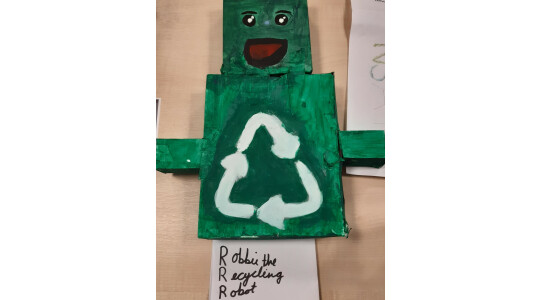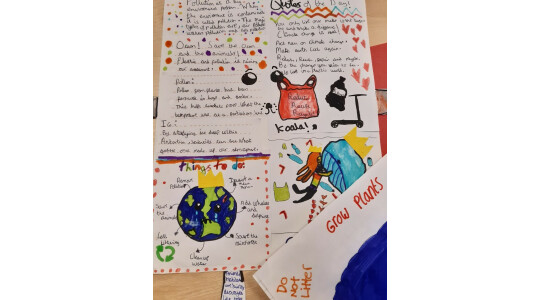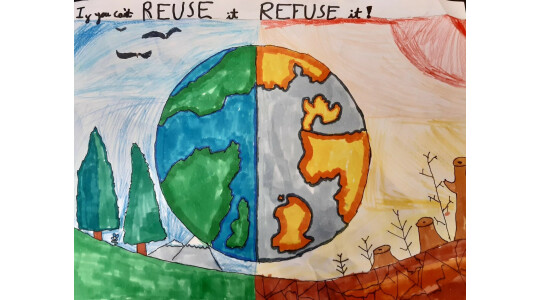Who will be our next generation of school governors?

We know that governance has an ‘age’ problem (we’re not young!) and that too few members of the public understand what school governance is (Missing Pool of Talent on School Governing Boards 2022). We also know that good decision making is well informed by the views and needs of key stakeholders (Governance Handbook). So what can schools and trusts do about it?
Why not follow the lead of Northern Star Academies Trust and put young people at the heart of the governance structure with a ‘Next Generation Board’.
“I just sit there in awe of their passion, their enthusiasm and their real optimism that they can make change.”
Lizzie Oliver oversees governance at the trust which has 2 secondary schools, 7 primary schools and nearly 700 members of staff across North and West Yorkshire. The trust is unusual in that it also hosts a farm on one of its primary school sites as well as 3 apiaries with trained beekeepers plus many other interesting environmental and sustainable activities.
We caught up with Lizzie to find out more about their ‘Next Generation Board’ and how it came about.
Lizzie, firstly can you tell us a bit more about Northern Star Academies trust.
The trust was formed in 2015 and it’s a really vibrant and dynamic trust. The schools serve very different cohorts of young people and we work hard to celebrate those differences. The farm is at New Park Primary Academy in Harrogate and has goats, chickens and even a community grocery which was recently featured on Channel 4 News). The grocery has joined forces with a local food bank and supports families across the wider community
Your ‘Next Generation Board’, what is it and where did the concept come from?
This whole idea came from a need to connect as schools returned back from lockdowns. . There was a frustration of having Trustees sat on video calls for a long period of time. Don’t get me wrong, the trust board was brilliant throughout Covid-19, they went through every risk assessment, reformatted the risk management framework and also launched our core strategy in September 2020, but it was all done from our own homes. The trustees weren’t able to visit our schools or even be in school buildings during Covid so, like every board, they’ve had to be quite remote.
Our ‘Next Generation Board’ is essentially a governance group whose membership is made up of pupils from across the trust. In our trust governance structure, we have an overarching trust board and then local governing bodies linked to schools as well as other specific committees. My role as Director of Governance reports directly to the trust board and the Next Generation Board is linked to the board in our structure via me, along with our other governance forums. It’s not a formal committee as there are age restrictions on becoming a governor (18+) but we wanted to give students and pupils an opportunity to feed back their ideas and have their voice heard at the heart of our governance structure.
The children were asked to apply for places on the board at the start of the academic year, so it’s still very new. There were 2 places on the board available for each school and we decided to theme the first year around the environmental sustainability strand of the trust’s core five year strategy as we know there is absolute commitment and passion from young people for environmental sustainability. We thought this theme would be a hook to help engage them initially with the idea of the Next Generation Board but also act as a useful route into understanding what governance is and who the trustees are.
What did the application process involve?
We asked students and pupils to tell us what they think is important in terms of environmental sustainability, and tell us about the work their school already does. We asked them to write a letter, create a video or produce some artwork and said they could be as creative as they wanted. We had the most amazing range of applications - from posters to pictures, we even had ‘Robbie the Recycling Robot’ and papier mache earth models. We have a link trustee who chairs the Next Generation Board and she spent a whole afternoon going through every single application, so it was brilliant to get that level of trustee engagement from the start.
It wasn’t an easy decision but we chose two pupils from each school and we’ve since brought another school into the trust so we need to add another couple of students. They range in age from Years 4 up to Year 12 and they come together once every half term. We've had a couple of meetings but because of restrictions and geography they’ve only met online so far, but this term we’re really hoping to be able to bring them together in person as a group.
Do you have an agenda for the meetings?
For the first meeting we had a very clear agenda - we welcomed the members, explained to them what the trustees do and what the governors in each of their schools do and then we set out our expectations for the board. This was essentially the code of conduct and terms of reference but we didn’t put it that way. I thought lots of paperwork and rules would switch young people off, so instead it’s an agreement which asks everyone to respect each other and listen, but also to be bold and brave with their ideas. We set out the agreement and then got them to introduce themselves and talk on screen as they’d never met each other before.
Ahead of the second meeting, we asked them to chat to their classmates and peers on the sustainability theme. In the meantime, we got together a welcome pack for them (rather like our induction pack for trustees and governors, but a lot more colourful and engaging). The pack included some sunflower seeds and a sunflower growing challenge and they’re going to have a competition with the trustees to see who can grow the tallest plant - again just an idea to keep them all engaged and hooked in.
We’ve got a key member of staff in each school working with the Next Generation Board members and supporting them with any tasks.I’d spoken to a couple of those members of staff who said some of secondary pupils were running a whole school survey as a result of the Next Generation Board. We decided that would be a good focus for our second meeting, so we asked those students to talk to the rest of the group about the survey, and a loose agenda was formed. By the time we’d heard from those pupils about their survey - that was it; everyone wanted to talk and every single set of pupils started enthusiastically sharing what they’re doing in their schools, from growing vegetables to making their own compost. One school’s just been awarded the eco flag award and others were talking about the farm. They were sharing with each other and the link trustee the issues that are important to them and what’s been going on in their schools.
How have you explained governance to the next generation?
In the welcome pack we tried to set out very simply what governance is - we told them that this is a group of people who ask the, ‘how do we know’ question. We wanted to get across to our young people that there is a group of people who are guardians of what’s happening in our schools.
From next academic year, I’d like our Next Generation Board to link with the local governing bodies as well, so they connect with the governors locally and start to inform those conversations too.
Can you begin to see how it might effect change within the trust and shape the strategy and vision?
I would hope it’s going to have an impact although it’s difficult to judge after just two meetings. I really hope it will keep a thread of pupil voice in the trustees’ minds.
We’ve just had one of our first face-to-face trust board meetings post-Covid at Skipton Girls High school and the two members from the Next Generation Board attended the first item on the agenda. They met the trustees in person and spoke to them for the first ten or 15 minutes about some of their recent activities, but they were also able to voice to trustees some of the challenges they face. I think having that voice of young people in the room really helps focus the board that this is the absolute core purpose of the trust, to support and get the best educational experiences for young people.
Will you do this with every school meeting?
Yes this will happen every time. It just helps set the right tone and focus for the meeting.
What do the trustees think so far?
They’ve been on board with the idea since approving the original proposal, and they’re certainly very positive about it. The link trustee has really enjoyed engaging directly with our young people. It’s absolutely a different voice at board meetings, and it’s the most important voice in our trust. The trust board heard about the farm and grocery shop as it was being developed - but to actually meet with the young people who’re part of the schools driving these initiatives is really helpful. The trustees value local governance and see the pupils as part of that.
We run ‘pupil voice’ more formally with our Executive Directors of School Improvement who go into our schools to talk about safeguarding and other areas of school life, and that is fed back to the trust board as well. However this is different as we’re bringing students into the governance structure.
Overall I’ve just been amazed by how much the young people have taken to it and run with it. It’s the best meeting of the half term for me. I just think it’s brilliant.





Post your comment
Comments
No one has commented on this page yet.
RSS feed for comments on this page | RSS feed for all comments